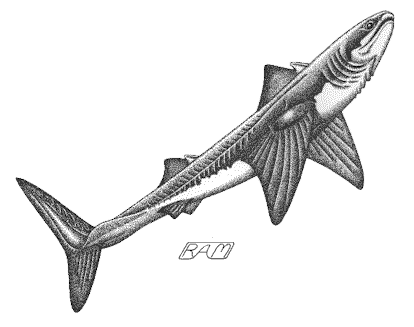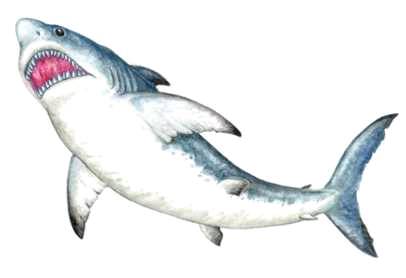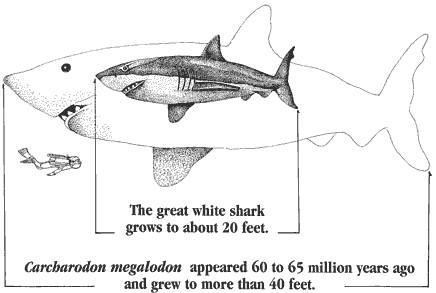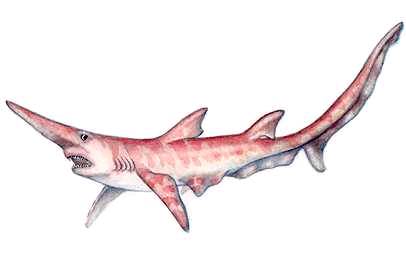
Other Ancient Denizens of the sea
Accordingly, as you may have already guessed, the frill shark is only one of the many species of ancient sharks. There are many primitive shark species, many of which have evolved into the very creatures that you are now well acquainted with. The frill shark is special however because it remains untouched and unchanged after all of these years. In fact before I delve into some other ancient shark species, it is imperative that I tell you, that sharks have been around for the longest time, they were here before humans of course, but also before land animals. Obviously, they were a vital part of the ecosystem several thousand years ago, and they still are today. So isn’t it only fair that we learn to respect them, possibly even learn to let them be, and realize that they are not the killers we think them to be. So thus, I will mention a few other primitive species so that you may become even more knowledgeable about the shark.
Cladoselache : A bit of an odd creature, it grew to be about 4 feet in length. It displayed many different characteristics including a rounded snout and a  mouth at the end; it had a long jaw with many teeth. This shark was an exceptionally fast swimmer with well developed keels along the tail stalk. What makes it odd however, is that it appears to have swam the seas virtually naked, that is it hardly had any scales. However it seemed to have managed quite well without them.
mouth at the end; it had a long jaw with many teeth. This shark was an exceptionally fast swimmer with well developed keels along the tail stalk. What makes it odd however, is that it appears to have swam the seas virtually naked, that is it hardly had any scales. However it seemed to have managed quite well without them.
.
Megalodon : This bad boy sets picture of what a typical fearsome shark of today’s modern world looks like. Why? Well, because this prehistoric shark was huge, in fact it is likely that this was the largest predatory shark to have ever lived. This shark is estimated to have been anywhere from 48 to 58 feet long, and weighing about 20 to 30 tons. This is certainly a close relative of the great white, although many dispute otherwise. This shark’s diet probably composed of whales, large fish, and other large primitive fish species.


Scapanorhynchus : the name means spade snout, and one look at this creature will explain why it is so named. Its external appearance is similar to that of the goblin shark. Indeed it possesses a long flat snout, with sharp pointy teeth. This animal has been found in fossil form, in 5 different continents and is dated to be about 110 million years old.
